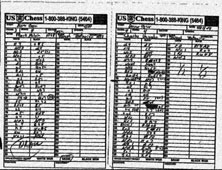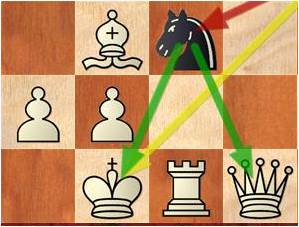Total Chess: Tournaments

There is nothing more challenging and rewarding to test your skills than a chess tournament. Chess tournaments are held everywhere for children and adults at all ages and levels.
If you have never played in a chess tournament before, it is best to start with a beginner level tournament, then work your way up to more advanced tournaments.
Beginner and scholastic tournaments are a great way to introduce children and new players to tournament chess. The atmosphere is generally supportive and nurturing, and players can test their chess ability, make new friends, and learn good sportsmanship. Advanced and rated tournaments are for players who are more serious about chess. The atmosphere is more formal and intense, and the competition is very strong.
Most chess tournaments today are organized using a Swiss system format. This means that each player is paired with another player having the same win/loss record. All players play the same number of games, and a player is never knocked out or eliminated from the tournament. A player may lose their first game, then come back and win the rest of their games and still get a prize. This makes chess tournaments more fun and interesting for all players.
In beginner tournaments, players usually hide pawns to select color. One player hides a white pawn in one hand and a black pawn in the other hand. The other player then picks a hand and takes whatever color is in that hand. In advanced tournaments, you are told what color you will play in each game.
Beginners usually do not play touch move, they play untouch move. Advanced players always play touch move. Touch move means if you touch a piece, you must move that piece. This is too formal for beginners. Untouch move means when you move a piece, your move is not over until you take your hand off your piece. If you change your mind, you can take back your move. The opponent cannot move, though, until you let go of your piece, so you must let go to end your move. If you do take back a move, be sure to put your piece back on the same square from which it came. If you put it back on a different square, then that will become your move.
Beginners usually do not use chess clocks. Chess clocks add pressure to the game. Beginner tournaments are supposed to be challenging, but not stressful. Most beginners will complete their games within half an hour without a chess clock. Any games not completed in that time are decided by a tournament director. This is done by counting the points remaining for each player. A player who is five or more points ahead gets a win, and a player who is five or more points behind gets a loss. If there is less than five points difference, then the game is a draw. In advanced tournaments, any games that are not completed in time for the next round are adjourned and then completed later.
Beginners are usually not required to do chess scorekeeping. Scorekeeping means writing down every move so that the game can be replayed later. Scorekeeping adds an extra amount of work and is sometimes difficult for beginners. In advanced tournaments, you are required to do scorekeeping.
Beginners usually do not play rated tournaments, they play unrated tournaments. A chess rating is a number assigned to a player based on their playing strength. The stronger the player, the higher their rating. The chess rating system is based on numbers from 0 to 3000. Beginners are rated under 1000, intermediate players are rated 1000 to 1500, advanced players are rated 1500 to 2000, experts are rated 2000 to 2200, and masters are rated 2200 and over. Grandmasters, the strongest players in the world, are usually rated over 2500.
During a game, if the players have any questions, problems or disagreements, they should stop playing and ask for help from a tournament director. A tournament director will help settle any disputes and get your game started again. In resolving disputes, the tournament director should only talk to the two players, not to any friends, parents or bystanders. Make sure both players agree on the settlement before restarting the game.
Everyone who plays should practice good sportsmanship, which means shaking hands before and after every game, playing legally, and being fair and honest in settling any disputes. Everyone wants to win, but it is okay to lose, too. Even the world’s champion loses chess games. When you lose, you learn. You should always do your best, which means you should try to win, but you should also have fun while you are playing.
***
From the book, “TOTAL CHESS: Learn, Teach and Play the Easy 1-2-3 Way,” by John Herron
TOTAL CHESS is your complete guide to chess. It covers everything: rules, strategies, tactics and checkmates.
Everything in chess comes in threes. Three simple strategies are presented for the opening, midgame, endgame, etc. Each lesson is brief and covers one concept in simple language that everyone can read and understand.











Comments: